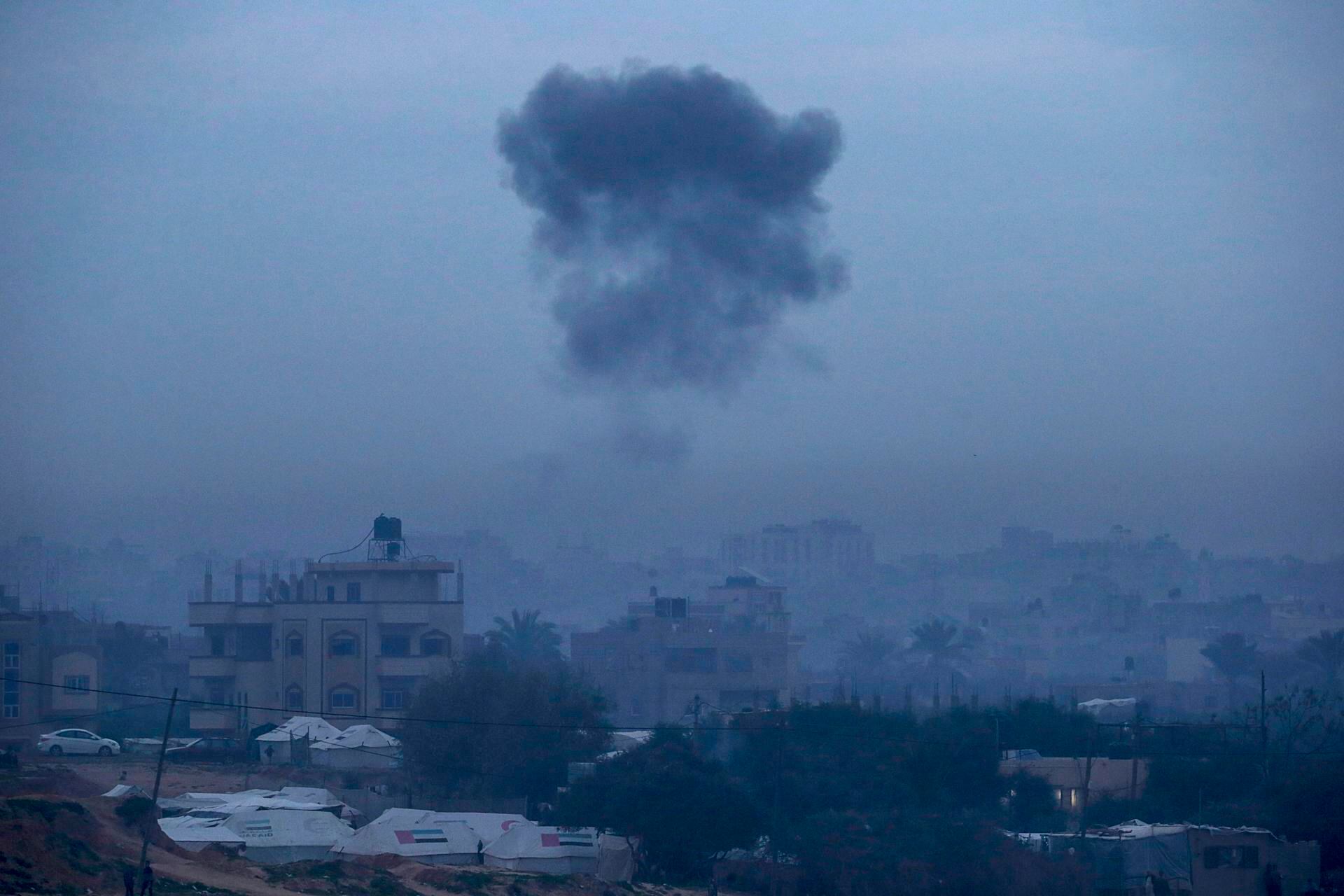
The war in Gaza Strip is causing an environmental crisis “without precedents” due to the contamination of soil, water and air and “irreversible damage” in natural ecosystems, warned this Tuesday the Program of the United Nations for him Environment (UNEP).
“Not only are the people of Gaza dealing with untold suffering from the ongoing war, but the significant and growing environmental damage in Loop “They could lock their people into a long and painful recovery.”Inger Andersen, executive director of UNEP, based in Nairobi, said in a statement.
“All this harms the health of the population, the food health and the recovery capacity of Gaza.“added Andersen, whose agency published a preliminary report on Tuesday in response to a request made by the Palestinian authorities last December.
That assessment concluded that the war has not only “reverted” the small advances that had been achieved – such as the development of desalination facilities, wastewater treatment or the growth of solar energy – but has also generated some 39 million tons of debris.
These debris represent “a risk to human health and the environment”, by containing unexploded explosive devices, asbestos or industrial and medical waste, as well as human remains that must be treated “sensitively and appropriately.”
According to the report, none of the five plants that treated wastewater in Gaza are still in operation, so beaches, soil or rivers are being contaminated with a large amount of pathogens, microplastics and dangerous chemicals.
Soil and water have also been contaminated by heavy metals and explosive chemicals from munitions deployed throughout Gaza, a situation exacerbated by the destruction of solar panels, which can release, for example, lead.
In addition, five of the six plants that managed solid waste in the Strip were damaged and, as of November 2023, 1,200 tons of garbage were accumulating daily near the camps and shelters where the Gazan population stays.
UNEP also warned about the risks that the tunnels dug by the Palestinian Islamist organization Hamas and their destruction by Israel could present.
“Depending on the construction standards of the tunnels and the extent to which water is being pumped into them, the preliminary assessment warns of long-term risks to human health from contamination of groundwater and to buildings built on tunnel surfaces. potentially unstable terrain, the agency stressed.
Due to the security situation and access restrictions, UNEP had to prepare its preliminary report with remote monitoring tools – such as satellite images -, data from Palestinian technical entities, consultations with multilateral partners and documents on the work on the ground of the UN, in addition to scientific literature.
More than 37,000 people have been killed in Gaza, most of them women and children, and more than 85,000 have been injured, according to the Hamas-controlled Gaza Health Ministry, since Israel launched its offensive in the Strip following the surprise attack. launched by the Islamist group on October 7 on Israeli soil. In that attack more than 1,200 people died and another 251 were kidnapped.
It may interest you
- US blames Houthis for missile attacks off Yemen coast
- Climate change: learn about the startups that mitigate environmental impact
- Renewables and regeneration for business sustainability
Source: Gestion
Ricardo is a renowned author and journalist, known for his exceptional writing on top-news stories. He currently works as a writer at the 247 News Agency, where he is known for his ability to deliver breaking news and insightful analysis on the most pressing issues of the day.











